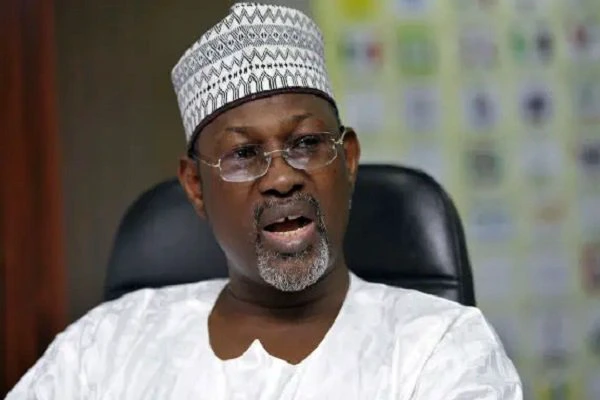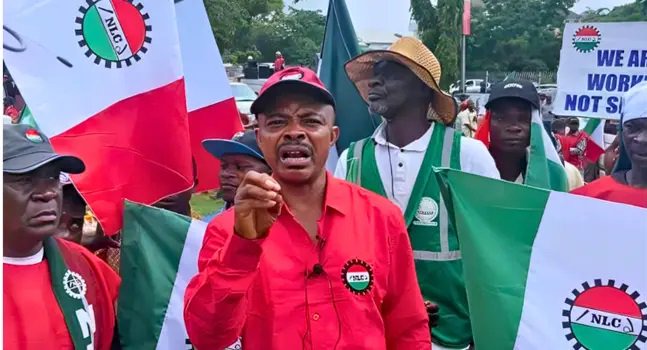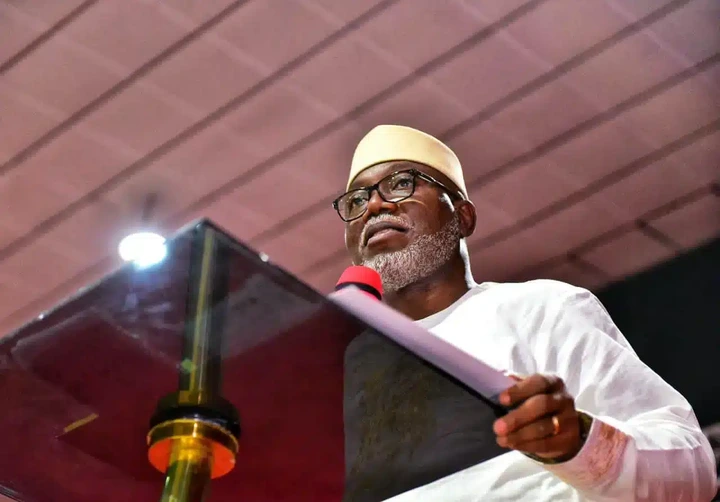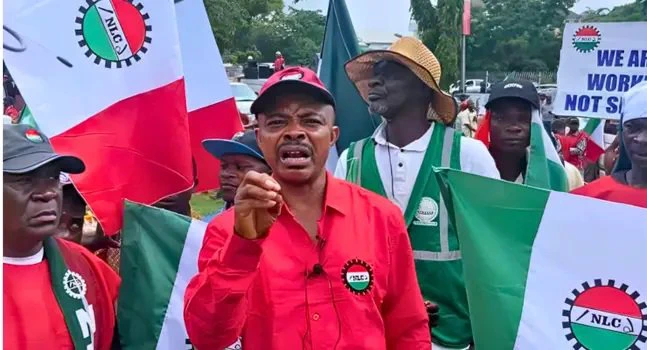Quickly! Watch The Video Before It’s Deleted! |Save Hot 3:00 Minutes $3x V!de0s To Ur Phone Directly | Watch 2:00 H0t $3x V!d0es Now!
Quickly! Watch Before It’s Deleted! Another Popular Nigeria Pastors Wife $leeps With Male Church Member, Husband Engaged In Physical Compact Him. Watch The Full Video Here Now.
President Bola Ahmed Tinubu has introduced many reforms across the sectors of the economy in his bid to reposition the country.
Adjustment to some innovations may have brought pains. But they are transcient. When the gains start to pour in, the temporary hardship would be over.
Not many people are receptive to reforms. Thus, citizens also need enlightment about their utility and long term effects.
Special Adviser to the President on Livestock Development Prof. Attahiru Jega and Senator Saliu Mustapha tried to carry the message of reforms to Kwara State recently, where they urged support for the novel initiatives.
The University of Ilorin’s Main Auditorium was filled to the brim. It was not the usual convocation pomp, or the familiar convulsions of student union politics. It was a different kind of gathering – an intellectual festival and a policy town hall.
Jega, former chairman of the Independent National Electoral Commission (INEC), and Mustapha, Chairman of the Senate Committee on Agriculture Production Services and Rural Development, who was honoured by the institution, called for collaboration between the town and the gown on national development.
Jega delivered the yearly Distinguished Personality Lecture of the Faculty of Social Sciences, titled: “The Political Economy of Livestock Development in Nigeria: Challenges and Prospects in honour Mustapha.
He emphasised that transforming the industry is not just an economic ambition, but a national imperative, adding that modernising and commercialising the livestock sector is not a luxury but essential.
He said the transformation of the livestock sector has the potentials of nourishing the population, stabilising fragile regions, unlocking economic value, and restoring dignity to rural livelihoods.
Jega said the envisaged transformation will require the collaborative efforts of policymakers, researchers, traditional rulers, and private sector stakeholders.
He urged legislators, academics, business executives, and community leaders to move beyond conferences and convert policy blueprints into visible actions across farms, markets, and legislative platforms.
Jegs said: “The time for half-measures has passed. What lies before us is the opportunity to transform a historically neglected sector into a beacon of resilience, equity, and prosperity”.
Quickly! Watch The Video Before It’s Deleted! |Save Hot 3:00 Minutes $3x V!de0s To Ur Phone Directly | Watch 2:00 H0t $3x V!d0es Now!
Quickly! Watch Before It’s Deleted! Another Popular Nigeria Pastors Wife $leeps With Male Church Member, Husband Engaged In Physical Compact Him. Watch The Full Video Here Now.
The Vice-Chancellor, Prof. Wahab Egbewole (SAN), who was represented by the Deputy Vice-Chancellor (Management Services), Prof. Adegboyega Adisa Fawole, reaffirmed the institution’s commitment to national development,
By the time the robes of academia gave way to the hush of the first speech, it was clear that this was not merely another distinguished lecture, it was a symbolic confluence of campus, parliament, and presidency, with agriculture as the bridge.
Jega’s voice carried the same professorial authority with which he once taught political science, now marshalled in defence of goats, cattle, poultry and the fragile ecosystems they inhabit.
He hailed UNILORIN as “a national pride,” an institution that had weathered storms to remain stable, and therefore a fitting host for a conversation about stability in a sector too often synonymous with conflict.
At the heart of his lecture lay an inconvenient truth: Nigeria’s appetite for protein is racing ahead of its capacity to produce it. He said population growth and changing diets have turned livestock into both an opportunity and a looming crisis. Without reform, the country risks deeper rural poverty, worsening malnutrition, and protracted conflict over grazing and land.
His prescription was not romantic. It was a call for modernisation: from subsistence to commercial systems, from open grazing to managed ranches, from informal trading to traceable supply chains.
The former university don outlined a step-by-step glidepath — allowing existing practices to coexist with new systems while slowly transitioning to intensive, climate-smart livestock production. It was, in effect, a plea for pragmatism over polemics.
The lecture gave an insight into President Tinubu’s reform intentions. By appointing Jega earlier as Special Adviser and Coordinator of the Presidential Livestock Reform Initiative, the presidency elevated livestock from the periphery of agricultural policy to its centrepiece. The idea of a dedicated livestock ministry, once a footnote in committee reports, is now reality.
The blueprint is ambitious: transform pastoralism into modern ranching, attract private capital into dairy and meat production, and tame the cycle of farmer-herder conflict. But ambition is easier announced than achieved. Jega’s roles are meant to give flesh to those bones.
The University of Ilorin provided a platform for deseminating the message, being a campus that has built its reputation on consistency, relative peace, and a refusal to descend into the instability that plagues many others. Hosting the nation’s livestock debate was both symbolic and strategic: a university that embodies stability offering a stage for a sector that craves the same.
For the university, there were material dividends too. Senator Mustapha pledged N10 million for immediate faculty support, alongside commitments towards a lecture theatre and an ICT centre. It was a reminder that ideas are best remembered when backed by tangible contributions.
The Senator became the bridge. For him, the honour was doubly significant. As chairman of the Senate’s agriculture production committee, he is the legislative custodian of much of what Jega prescribes. His presence signalled that parliament is not a passive observer but a necessary enabler through budgets, oversight, and laws.
It also cast him in a new light before his Ilorin constituents: a legislator not just distributing palliatives but convening ideas, attracting investments, and aligning with the president’s reform narrative. In a season where politicians are often defined by what they grab, the optics of Mustapha being defined by what he convenes are politically valuable.
What lingered was not just the memory of a famous professor speaking on behalf of a sitting president, or the pride of a senator being celebrated in his academic city. What lingered was the sense that livestock policy, often dismissed as a rural footnote, now sits at the heart of Nigeria’s economic and political future.
Quickly! Watch The Video Before It’s Deleted! |Save Hot 3:00 Minutes $3x V!de0s To Ur Phone Directly | Watch 2:00 H0t $3x V!d0es Now!
Quickly! Watch Before It’s Deleted! Another Popular Nigeria Pastors Wife $leeps With Male Church Member, Husband Engaged In Physical Compact Him. Watch The Full Video Here Now.


 Entertainment4 months ago
Entertainment4 months ago
 Politics4 months ago
Politics4 months ago
 Breaking News5 months ago
Breaking News5 months ago
 Breaking News6 months ago
Breaking News6 months ago
 Breaking News5 months ago
Breaking News5 months ago
 Breaking News6 months ago
Breaking News6 months ago
 Breaking News6 months ago
Breaking News6 months ago
 Breaking News6 months ago
Breaking News6 months ago

